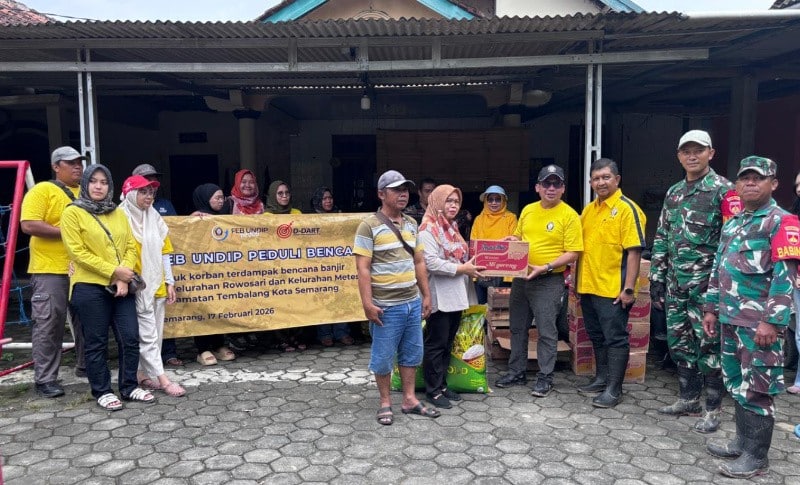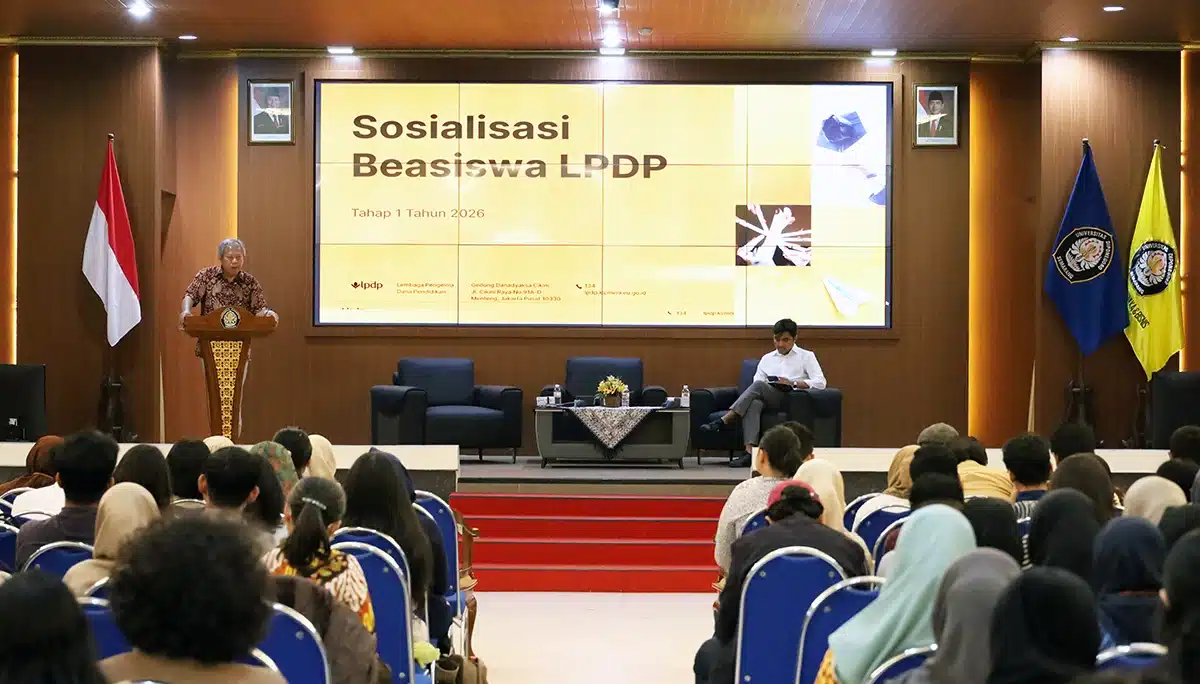A secure food supplies and do not endanger the health of consumers through chemical, biological or other contamination are essential to achieve a good nutritional status.
Consumer protection and prevention of illness caused from food (foodborne illness) are two important elements in a food safety program, and are a shared responsibility between the government, the food industry (producers) and consumers.
The Undip Faculty of Animal Husbandry and Agriculture through the Science and Technology program for Undip Assisted Villages (IDBU) held a capacity enhancement training for halal animal slaughterers in collaboration with the Kudus Regency Agriculture and Food Service. This training is intended to improve knowledge and skills for animal butchers regarding the technicalities of slaughtering animals in order to produce safe, healthy, whole and halal food products (ASUH). Ir. Bambang Sulistiyanto, M.Agr.Sc., Ph.D, IPU as the chief executive and lecturer of the Faculty of Animal Husbandry and Agriculture (FPP) reported that this activity was attended by representatives of halal animal slaughterers from all sub-districts in Kudus Regency with standard training and the Covid-19 standard room. Resource persons for this training came from the Kudus Regency MUI, Halal Animal Slaughter Practitioners (Juleha) and from the Kudus Regency Agriculture and Food Service. This training is expected to provide knowledge about animal slaughter methods that meet the technical standards of animal welfare and syari to produce ASUH and safe animal-based food for the slaughterer, considering that many cases of animal slaughterers have been injured and even died, due to raging livestock or the like. Specifically, this training is intended to equip the skills of turkey business actors, which are the new icons of Kudus city, so that processed food products from turkey can meet ASUH food criteria, thereby increasing the competitiveness of processed turkey products as the new culinary icon of Kudus city.
Wednesday, 19 August 2020, this training was opened by the Dean of the Faculty of Animal Husbandry and Agriculture, Dr. Undip. Ir. Bambang Waluyo HEP., M. S., M. Agr., IPU. The Dean of FPP stated that ASUH food is hygiene and sanitation. Hygiene is an action to prevent or reduce the incidence of hazards to health and the environment. The application of hygiene and sanitation is generally known as Good Hygiene Practices (GHP) or Good Manufacturing Practices (GMP). In order to provide food of animal origin subject to ASUH, it is necessary to implement a system of food safety and quality assurance in the supply chain, starting from animal husbandry until it is ready for consumption. “Therefore, it is necessary to examine and pay close attention to the physical food of animal origin when buying, clean the food from animal origin before processing, store it in a cooler according to the recommended temperature, so it is not just slaughtered and done, said the Dean of FPP.
Head of the Department of Agriculture and Food of Kudus Regency, Mr. Catur Sulistiyanto, S.Sos., MM welcomed this activity and hoped that from today’s training, representatives of halal animal slaughterers could monitor or provide examples of halal and thoyib animal slaughter according to the rules and Islam sharia. This activity is also an evaluation of activities from the moment of Eid al-Adha in 2020, so that deficiencies that occur in the field can be found for solutions. In the future, it is hoped that they are capable of providing ASUH products. Hopefully with the synergy of the Department and universities, it will help improve knowledge, competitiveness and welfare of livestock business actors around the Kudus area.
The participants were very satisfied with the provided materials and skills and hoped that the training could be reproduced and there would be certification for animal slaughterers, so that in the future there would be no issue finding a slaughterer who understands the aspects of animal welfare as well as the sharia of slaughtering.









